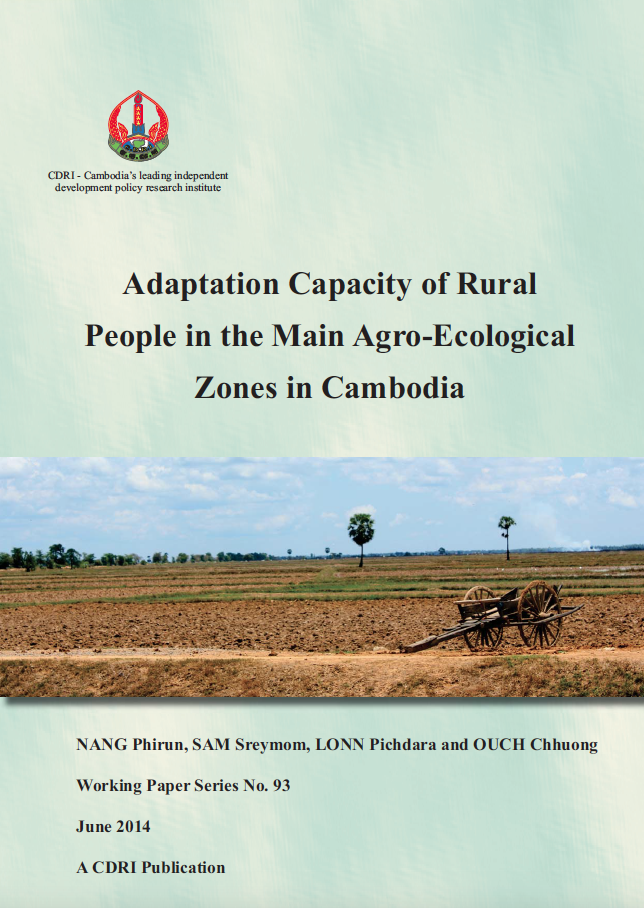
Adaptation Capacity of Rural People in the Main Agro-Ecological Zones in Cambodia
Cambodia is divided into four agro-ecological zones—the Tonle Sap plain, Mekong plain, mountains/plateau and coast—representing heterogeneous agricultural activity, population and livelihood systems (UNDP 2011b). Climate change impacts and the adaptive capacity of the people differ from one zone to another. Adaptation measures have varied according...
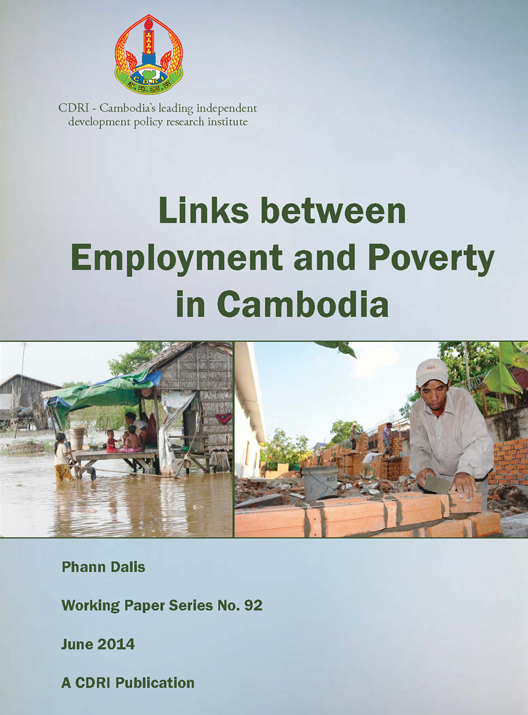
Links between Employment and Poverty in Cambodia
This paper explores labour market structure and employment links to poverty in Cambodia. Employment elasticity of growth, labour productivity and real wage growth are the main indicators of the labour market situation, while probit models estimate the connection between household employment and poverty likelihood. The paper combines macro and m...
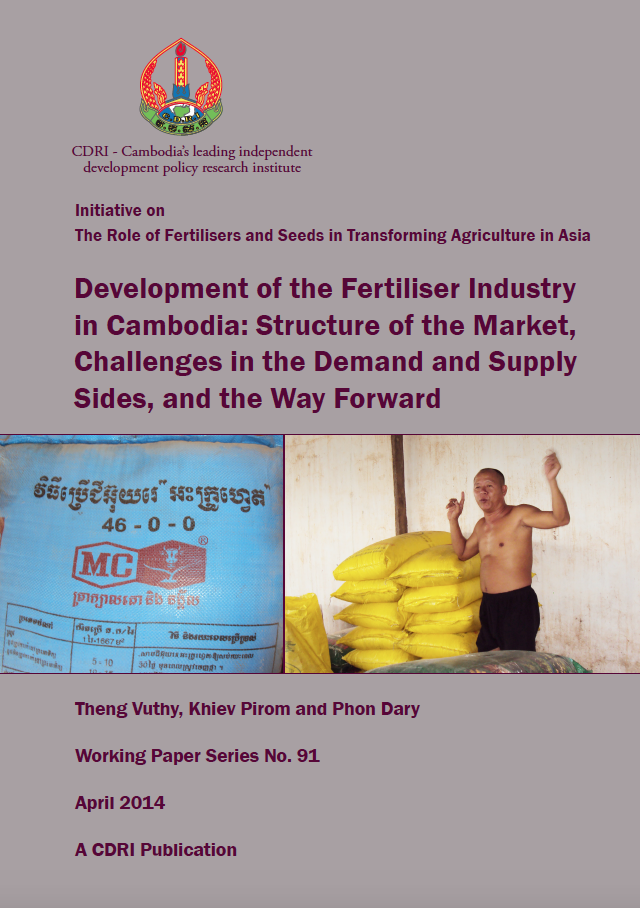
Development of the Fertiliser Industry in Cambodia: Structure of the Market, Challenges in the Demand and Supply Sides, and the Way Forward
Agriculture plays a crucial part in Cambodia’s economy, accounting for about 27.3 percent of GDP in 2010. The sector engages at least 59 percent of the economically active population, and over 90 percent of the population lives in rural areas where agricultural activities remain the primary source of livelihood. Agricultural growth, on average, was...
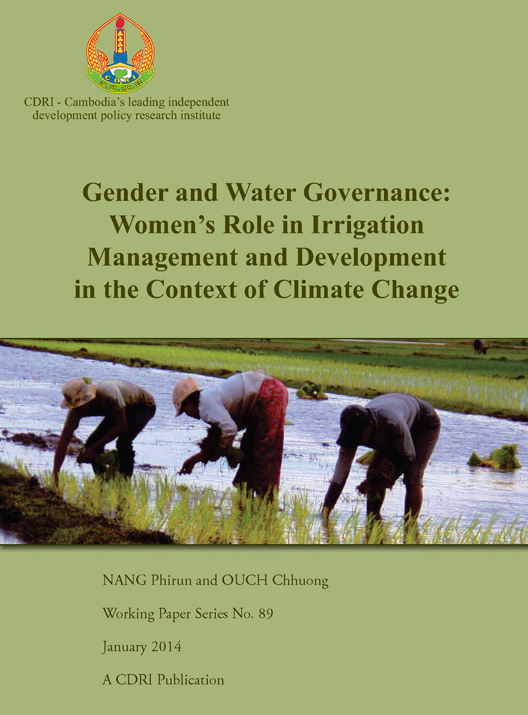
Gender and Water Governance: Women’s Role in Irrigation Management and Development in the Context of Climate Change
Addressing gender issues is essential in promoting and advancing the role and economic, social, political, legal and cultural status of women. The need to address this concern has been increasingly acknowledged by the government of Cambodia since it would help to improve and sustain not only family economy but also national development and eco...
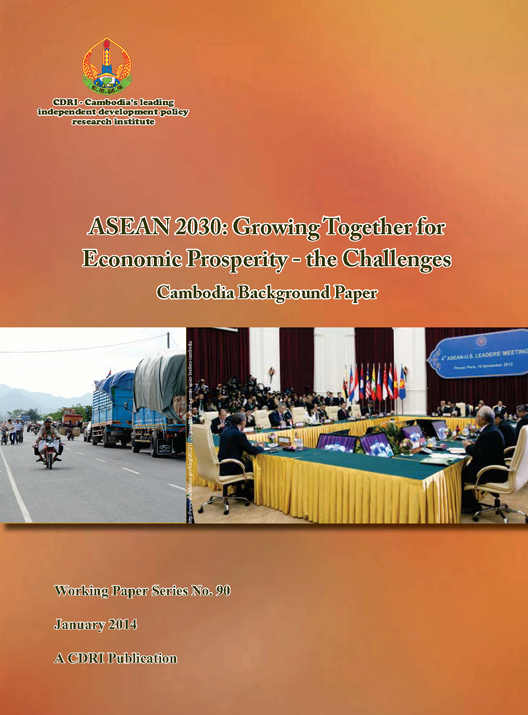
ASEAN 2030: Growing Together for Economic Prosperity – the Challenges Cambodia Background Paper
In late 2011 the Cambodia Development Resource Institute (CDRI) was commissioned by the Asian Development Bank Institute (ADBI) to produce a Cambodia country background paper for the ASEAN 2030: Growing Together for Economic Prosperity—The Challenges study. The study, conducted in collaboration with the ASEAN Secretariat and the ADB’s South-Ea...
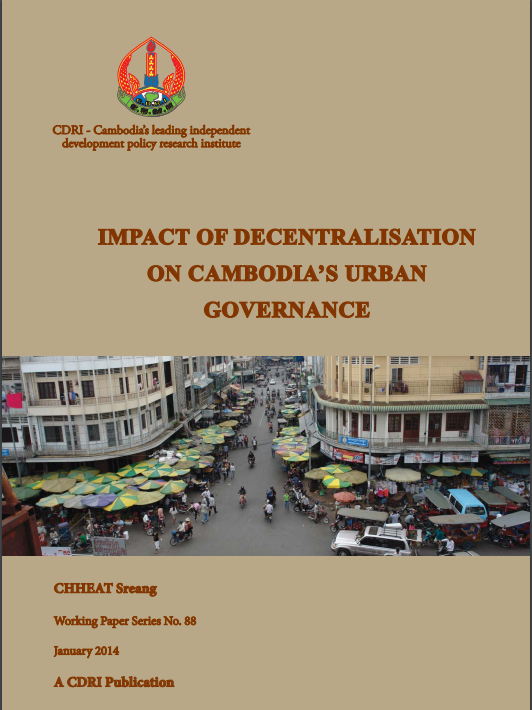
Impact of Decentralisation on Cambodia’s Urban Governance
Decentralisation has been pursued as a mechanism to strengthen local democracy and enhance service delivery within local government. There are high expectations that its promises can be realised through local citizens’ engagement in local decision-making processes that deal specifically with issues of local importance. Instituting local-level...
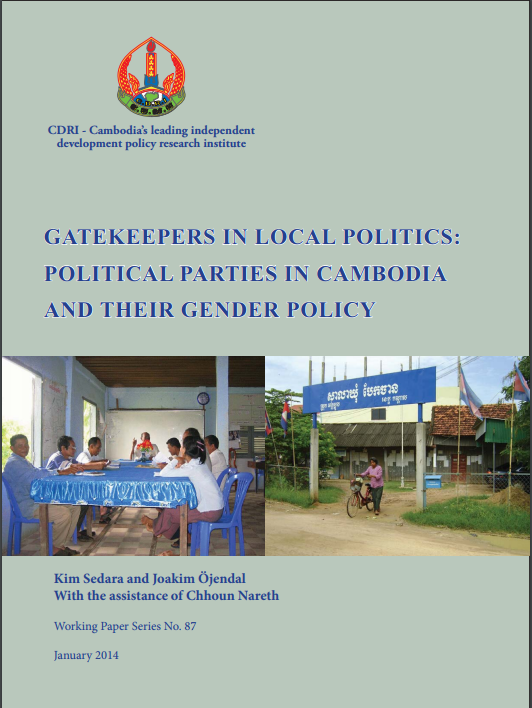
Gatekeepers in Local Politics: Political Parties in Cambodia and Their Gender Policy
Gender issues have become a part of mainstream Cambodian politics over the last decade, and gender-neutral electoral systems have been developed in cooperation between donors and government. Female representation has been achieved primarily through direct and indirect elections at different levels. And although Cambodia is a male-dom...
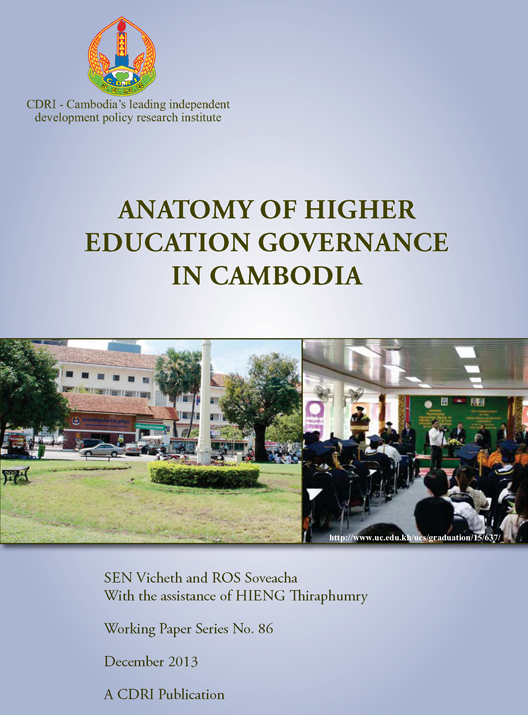
Anatomy of Higher Education Governance in Cambodia
Higher education plays a fundamental role in enhancing the intellectual capacity essential to creative leadership in all fields of national activity and in providing a skilled workforce able to respond to changing labour market demands. All citizens, and particularly the poor, need the opportunity and the skills to participate productively in the l...
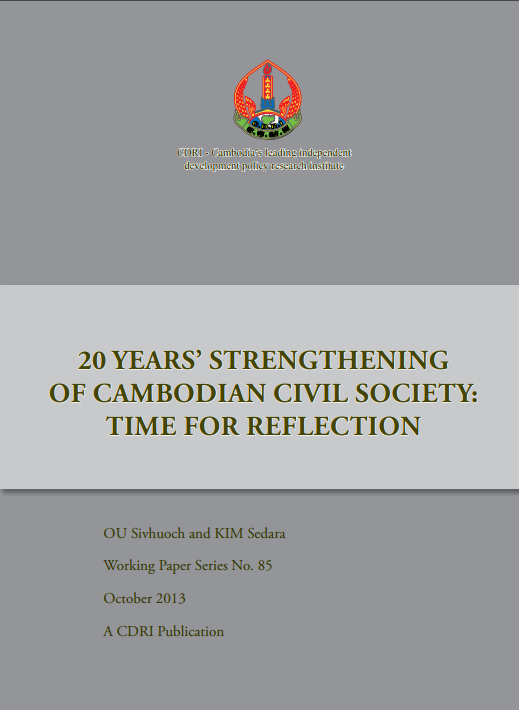
20 Years’ Strengthening of Cambodian Civil Society: Time for Reflection
In the 1980s and 1990s a large number of NGOs emerged in Cambodia, primarily in response to donors’ agendas on strengthening civil society to curb repressive developing country governments and support a broad democratisation process. Over the last 20 years, donor money has been concentrated on funding a small group of NGOs, mostly located in the co...
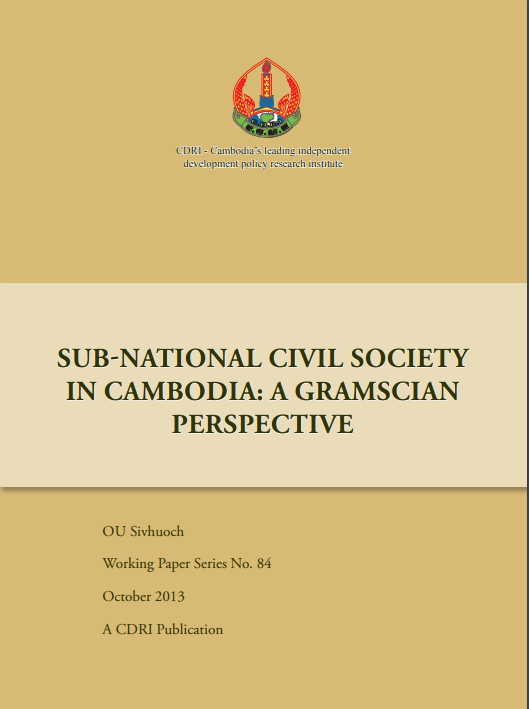
Sub-National Civil Society in Cambodia: A Gramscian Perspective
Several authors (particularly Laundau 2008; Henke 2011) label Cambodian national civil society as a sphere that is neither apolitical nor autonomous, but influenced or co-opted by and blurred with the state. They posit that a Gramscian perspective is relevant to interpreting civil society in the country. This article suggests that the application o...
